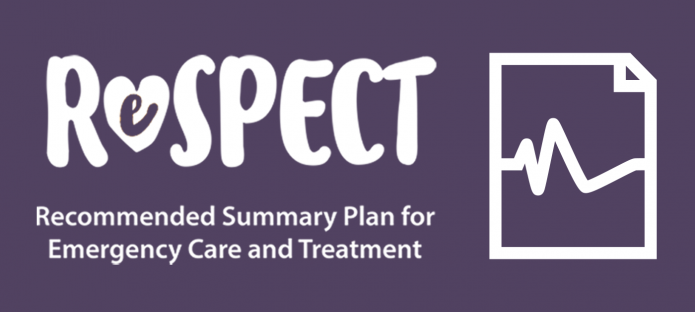We welcome the publication of two crucial reports today into Do Not Attempt Cardiopulmonary Resuscitation (DNACPR) decision-making during the COVID-19 pandemic.
We call upon NHS England and Improvement to champion the use of the Recommended Summary Plan for Emergency Care and Treatment (ReSPECT) process nationally.
The Care Quality Commission (CQC) has published its final report following its review of DNACPR decisions during the COVID-19 pandemic. Over the last few months, the CQC has engaged with a range of stakeholders, including RCUK. They have spoken to people and their families affected by DNACPR decision-making during the pandemic, to a range of health and social care providers and professionals involved in their care and reviewed people’s records in seven CCG areas. This has led to them making recommendations around the following key areas:
- information, training, and support
- the need for a consistent, national approach to advanced care planning and DNACPR decision
- oversight and assurance at local and system level to ensure that people experience personalised, compassionate care in relation to DNACPR decisions.
The report cites ReSPECT as a good example of a process that when done well, can support everyone to make decisions about their future care and treatment.
A report, also published today, by the charity Compassion in Dying, highlights the good and bad experiences of people from across the UK who have contacted them about DNACPR decisions made for them or their loved ones during the pandemic.
While these significant reports highlight examples of poor practice in relation to DNACPR decision-making during the pandemic, they also recognise that not everyone wants cardiopulmonary resuscitation (CPR) to be attempted. For many people, DNACPR decisions offer reassurance that they will not be given an intervention that may be unwanted or unsuccessful.
Sue Hampshire, Director of Clinical and Service Development at Resuscitation Council UK, said:
"People should be at the centre of their care and decision making. However, the COVID-19 pandemic has brought into the spotlight inconsistencies in the ways DNACPR decision making is carried out across the UK and just how crucial it is that decisions about CPR are discussed in the broader context of overall goals of care.
"Both the CQC review and Compassion in Dying reports highlight the importance of information, training and support, the need for people to be at the centre of their care and decision making and the need for a consistent, national approach to advanced care planning. People should be supported in decision-making sensitively and effectively wherever they live around the country.
"We urge NHS England and Improvement to take this opportunity to champion the use of the Recommended Summary Plan for Emergency Care and Treatment (ReSPECT) process nationally. ReSPECT puts the person at the heart of the conversation and ensures that people’s views about CPR are taken into consideration. The process is already used in around 70-80% of English counties.
"The ReSPECT process helps to ensure that clinical recommendations around emergency care and treatment, including decisions about CPR, are not made in isolation. Instead, any recommendations made are part of a broader conversation which aims to develop a shared understanding with the person, their legal proxy or family, about the person’s condition, the outcomes the person values and those they fear and clinical recommendations about future emergency care and treatment. As such the ReSPECT process provides reassurance that recommendations around whether CPR should be attempted are made in the context of what’s important to the person concerned.
"We would like to see all regulatory bodies across the UK and all health and social care organisations recognise the value of the ReSPECT process so that people and their families can take part in person-centred discussions and decision-making. This will help ensure quality, person-centred care and treatment for all wherever they live across the UK."

